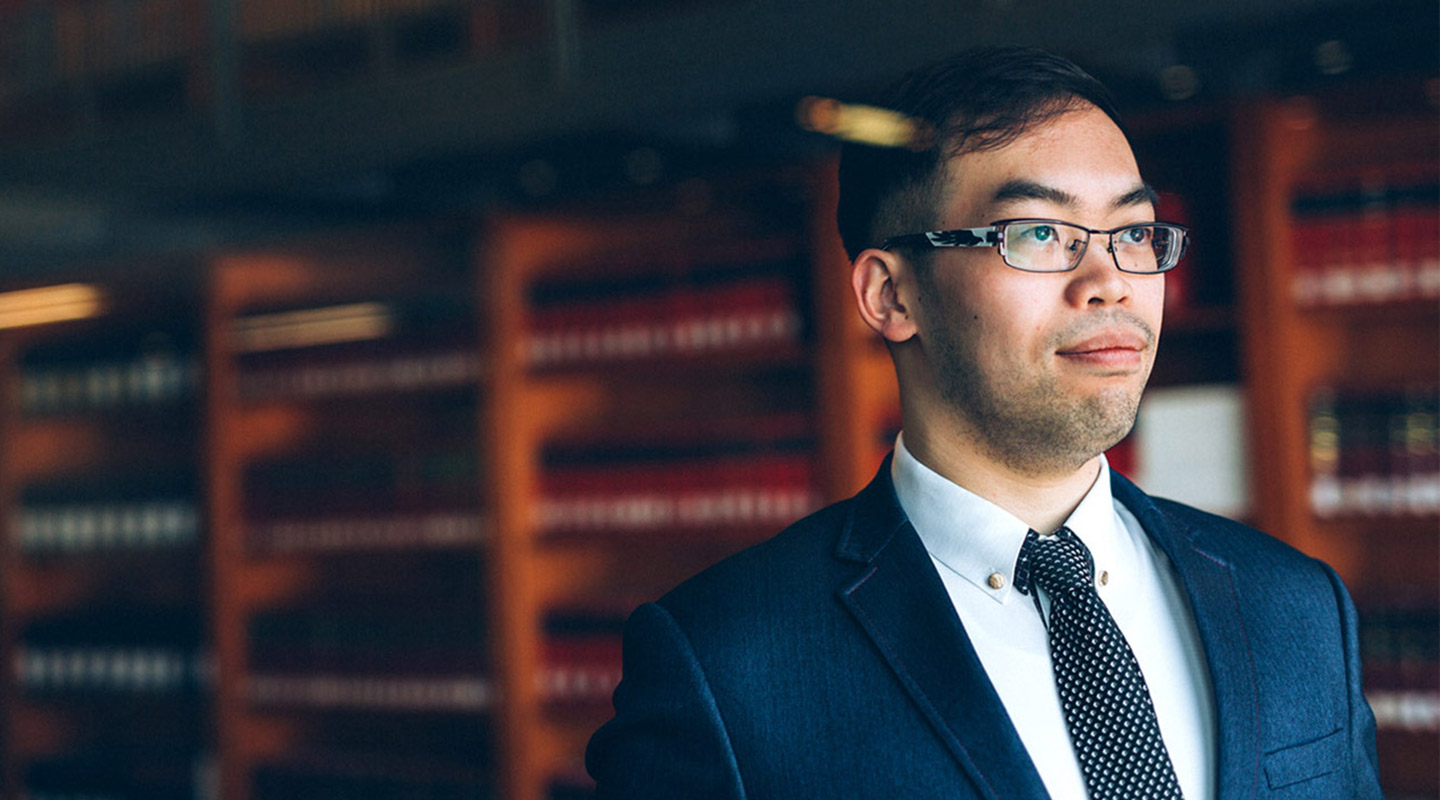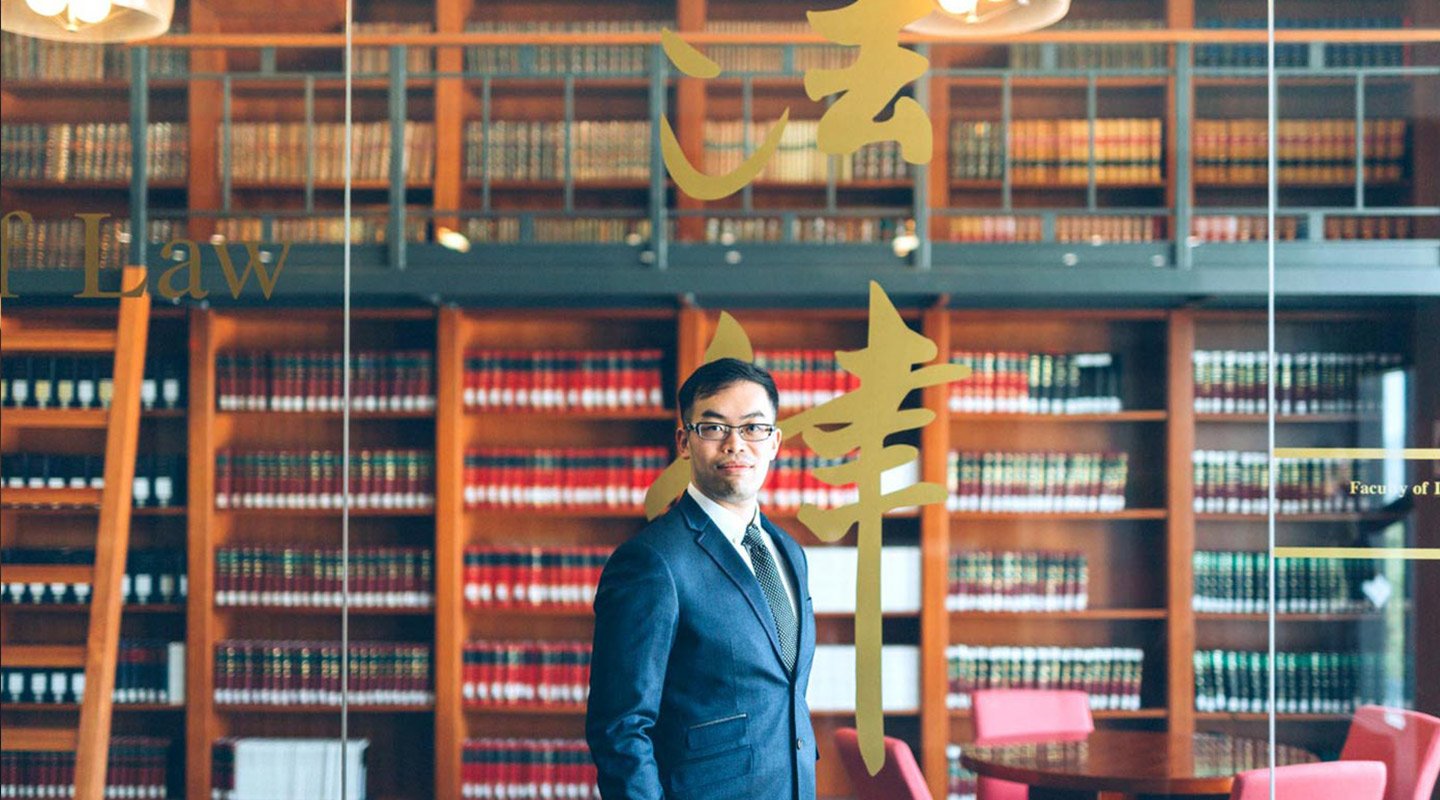Dear readers, With the launch of e-newsletter CUHK in Focus, CUHKUPDates has retired and this site will no longer be updated. To stay abreast of the University’s latest news, please go to https://focus.cuhk.edu.hk. Thank you.
Is Hong Kong’s Legal System Guilty?

The work of a CUHK law professor suggests that in many court cases where defendants plead guilty, they are doing so unaware of the rights and resources available to them.
The court system can be an intimidating one to navigate. Many ‘normal’ people may not understand how best to do that when they brush up against it, or what they are entitled to in terms of rights, the hands-on work of one CUHK law professor shows.
Kevin Cheng Kwok-yin has studied and analyzed cases involving 1,000 defendants in the magistrate’s court, the lowest level of the court system in Hong Kong. The majority of cases involve three crimes: shoplifting, common assault, and drug possession. Around 60% of defendants pled guilty at the first opportunity, at their plea arraignment.
The relatively high proportion of guilty pleas does not surprise Professor Cheng, since the government will only bring cases it believes it can win. But there were various factors that determined if they admitted guilt.
The first reason is, of course, that they actually were guilty and ready to admit it. But that is not the only reason someone might admit guilt – even if they were innocent.
Professor Cheng found that some defendants didn’t understand the charge or what was going on. They may be charged with shoplifting, for instance, after inadvertently leaving a store with an item, and believe that means they are guilty.
Other defendants simply didn’t want the hassle of multiple court appearances for what typically ended up being a small fine, of a few hundred Hong Kong dollars. Defendants who were in custody without bail were also much more likely to plead guilty, to ensure swift release.
Key among the factors in a guilty plea, though, was whether or not the defendants defended themselves – those that did were three times more likely to admit guilt. That, to Professor Cheng, suggests many such defendants weren’t aware that they could receive free legal advice and representation from a duty lawyer on their first appearance.
Even after the free first appearance, there’s a flat fee of HK$540 (US$70) for a lawyer to handle the entire case from start to finish for defendants who pass a means test. That requires them to earn gross annual income of less than HK$185,810 (US$24,000).
It’s clear to Cheng, who is an associate professor in CUHK’s Faculty of Law, that many people don’t avail themselves of those resources. Others may short-change themselves in terms of justice.
‘Going through the system is daunting for many,’ Professor Cheng says. ‘And there’s a perception that lawyers equal cost.’
His approach meshed both quantitative and qualitative research. It was interesting but taxing to attend so many cases, record the circumstances and results, and then examine the data. But he feels this empirical research is a vital step beyond the case-law examination conducted by most legal scholars.
‘The observations can at times become quite tedious,’ Professor Cheng says, and took months. ‘It is the interest of the project, and in such methodologies, that drives you forward. And in the end, it is rewarding.’

On the quantitative side, he used a checklist of variables to classify cases, including the type of criminal offense and the demographic characteristics of the defendants. He then submitted the data to statistical analysis, to provide a broad picture of how the system functions.
On the qualitative side, he recorded what was said during the court hearings. He also interviewed criminal defense lawyers outside the court appearance. This helped explain why the system is functioning the way that it is, and why certain demographics were significant while others didn’t matter.
By looking at the magistrate’s court, he feels he is examining the ‘normal’ workings of the court, far from the sensational cases that grab the headlines. ‘These are the matters that affect the everyday criminal justice process,’ he says.
He is not ready to write off Hong Kong’s system of justice, although he sees plenty of room for improvement. ‘It works very well to a large degree,’ Professor Cheng says. ‘But there are so many areas in Hong Kong’s system that are unexplored.’
He has spoken with the volunteer social workers who work with defendants, hoping to improve the service those workers provide. While they cannot give legal advice, they can certainly point defendants in the right direction.
‘They can guide people through the ‘scariness’ of the system,’ he says. ‘They are able to build that bigger trust with defendants, and they’re not part of the system.’
His findings suggest that duty lawyers should have greater resources. He also believes that the general public needs more knowledge of the legal system, through public-service campaigns, seminars, Web-based resources and advertising.
The public’s perception ‘shouldn’t come just through TV series and dramas,’ he says. ‘Obviously, they emphasize other things.’ Ultimately he would like to present his findings to the government and push for reform.
Professor Cheng’s next project, after his work on initial guilty pleas, is to examine ‘cracked trials.’ Those are cases in which the defendant pleads ‘not guilty’ at their plea arraignment, requiring the Department of Justice to prepare a case and lawyers a defense, but then changes his or her plea to ‘guilty’ at a later date.
Professor Cheng has examined cases involving around 400 defendants who initially pled ‘not guilty.’ Some 70% of cases that go beyond the initial guilty plea ‘crack.’ That wastes time, money, and the effort of duty lawyers and the Department of Justice.
It’s also ultimately not fair on the defendant. ‘Justice delayed is justice denied,’ Professor Cheng says. ‘Defendants also want the decision made in an efficient way, but a fair way as well.’
He is uncertain why so many of the pleas ‘crack.’ It will require time with lawyers and the defendants to explain, work sponsored by the government’s Research Grants Council that should wrap up this year.
That will be the next case of his own to solve.
By Alex Frew McMillan
This article was originally published on CUHK Homepage in May 2017.